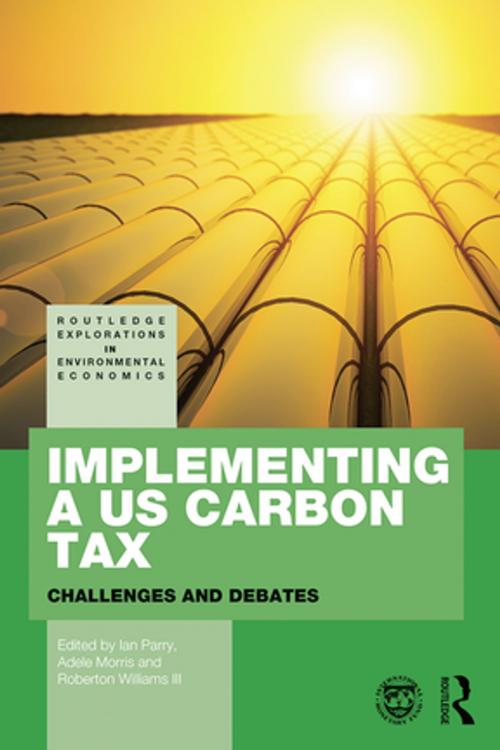| Author: | ISBN: | 9781317602071 | |
| Publisher: | Taylor and Francis | Publication: | February 11, 2015 |
| Imprint: | Routledge | Language: | English |
| Author: | |
| ISBN: | 9781317602071 |
| Publisher: | Taylor and Francis |
| Publication: | February 11, 2015 |
| Imprint: | Routledge |
| Language: | English |
Although the future extent and effects of global climate change remain uncertain, the expected damages are not zero, and risks of serious environmental and macroeconomic consequences rise with increasing atmospheric greenhouse gas concentrations. Despite the uncertainties, reducing emissions now makes sense, and a carbon tax is the simplest, most effective, and least costly way to do this. At the same time, a carbon tax would provide substantial new revenues which may be badly needed, given historically high debt-to-GDP levels, pressures on social security and medical budgets, and calls to reform taxes on personal and corporate income.
This book is about the practicalities of introducing a carbon tax, set against the broader fiscal context. It consists of thirteen chapters, written by leading experts, covering the full range of issues policymakers would need to understand, such as the revenue potential of a carbon tax, how the tax can be administered, the advantages of carbon taxes over other mitigation instruments and the environmental and macroeconomic impacts of the tax.
A carbon tax can work in the United States. This volume shows how, by laying out sound design principles, opportunities for broader policy reforms, and feasible solutions to specific implementation challenges.
Although the future extent and effects of global climate change remain uncertain, the expected damages are not zero, and risks of serious environmental and macroeconomic consequences rise with increasing atmospheric greenhouse gas concentrations. Despite the uncertainties, reducing emissions now makes sense, and a carbon tax is the simplest, most effective, and least costly way to do this. At the same time, a carbon tax would provide substantial new revenues which may be badly needed, given historically high debt-to-GDP levels, pressures on social security and medical budgets, and calls to reform taxes on personal and corporate income.
This book is about the practicalities of introducing a carbon tax, set against the broader fiscal context. It consists of thirteen chapters, written by leading experts, covering the full range of issues policymakers would need to understand, such as the revenue potential of a carbon tax, how the tax can be administered, the advantages of carbon taxes over other mitigation instruments and the environmental and macroeconomic impacts of the tax.
A carbon tax can work in the United States. This volume shows how, by laying out sound design principles, opportunities for broader policy reforms, and feasible solutions to specific implementation challenges.















